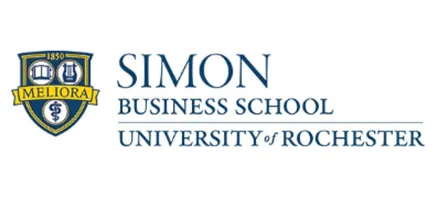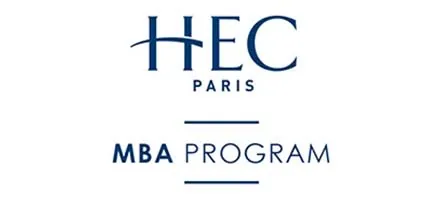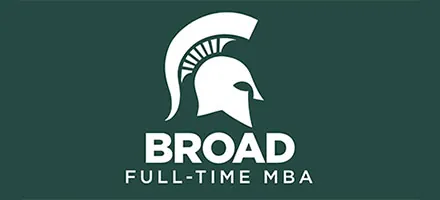
Employees at ZS Associates participate in the company’s first flash mob. The relatively small consulting firm out-performed many well-established and larger consulting firms for MBA job satisfaction. YouTube
A similar trend seems to take place in banking. Sans Barclays, which scored a 7.8 in job satisfaction, relatively smaller investment banking companies Credit Suisse (7.6) and Fidelity Investments (7.3) scored better than Goldman Sachs, J.P. Morgan, Citigroup, and others. “There are some companies up here that maybe aren’t the biggest names and maybe aren’t necessarily at that very top of the MBA compensation range but are getting very high satisfaction and recommend-to-a-friend scores,” Marvinac points out. “To me, that says MBAs should consider more than just compensation.”
LARGE COMPANIES DOING WHAT THEY CAN TO FEEL SMALL
To be sure, top-minded MBAs are thinking about more their bi-weekly paychecks. Hoebart says he weighted potential personal and professional growth as well as whether he enjoyed going to work everyday more than compensation when considering his full-time offer from Apple. “I was looking for a role where my skill set fit into the functions,” he explains, noting he wanted a position that would foster growth of his current skill set as well as the ability to learn new skills. Hoebart also said he considered factors like how he got along with his team, the respectfulness of Apple’s environment and even the commute (smart, considering the Bay Area’s horrific traffic). “It checked all the boxes for me,” he says about Apple’s offer.
Unprompted and before Poets&Quants’ conversation with Hoebart, Marvinac shared Hoebart’s sentiments about skill set match. “If you get an impact score that’s a little lower with the company, that to me indicates an MBA candidate who got there and began working and felt like they couldn’t make an impact based on the skill sets they brought to the table,” Marvinac explains.
For McGlory, working in an enjoyable and supportive environment was particularly essential. “Even though the compensation could be great at any job, I was focused on going somewhere I didn’t hate,” she says bluntly. “I didn’t want to go a place where I didn’t like the people or feel supported. I refused to go back to that kind of environment.”
Despite both being in massive organizations, Hoebart and McGlory felt PepsiCo and Apple provided a small-town feel. Hoebart said he was surprised by Apple’s nimbleness and the swift decisiveness of its managers. For McGlory, the immediate access to senior vice presidents and their presence and consideration of interns helped PepsiCo feel smaller. When PepsiCo’s employees requested a bus from Dallas to PepsiCo headquarters in Plano — about a half-hour drive — they immediately obliged. “When you’re interning, you’re interviewing the company,” McGlory notes. “What I saw was a lot of close relationships and friendships between people in the company.”
A HEALTHIER WORK-LIFE BALANCE
The data also revealed that MBAs are clearly concerned about a healthy work-life balance. For the most part, the days of busting 80-hour weeks are long gone. The median hours of work per week for the 32 companies is a much healthier 54 hours. MBAs at Citigroup even reported an average of 40 hours a week. There could be a slight correlation between average hours of work per week and job satisfaction. With the exception of Barclays and Credit Suisse, firms in the top five for hours worked per week, seven of the top nine companies with the highest job satisfaction rates have MBA respondents who say they work fewer than the median hours per week.
MBAs say they work the most hours at Goldman Sachs, where they average 86 hours per week, Barclays (73 hours), JP Morgan (72), McKinsey (72), Credit Suisse (70) and Morgan Stanley (70). MBAs say they travel the most at the big consulting firms. On this measure, McKinsey takes the lead with responding MBAs saying they spend an average 78% of their time on the road, with PwC Advisory second (77%), A.T. Kearney (73%), Accenture (69%), and Strategy& (66%).
As for recommending an employer to a friend, Bank of America and Morgan Stanley were on the low end of the scale, scoring 4.6 and 4.8, respectively. As stated, the two smallest companies included in the data — L.E.K. Consulting and ZS Associates — scored highest for recommending to a friend. For MBAs seeking immediately important and impactful work, banking might not be the best option. Citigroup, Morgan Stanley, and Bank of America all scraped the bottom of the impact portion of the data, with scores of 4.0, 4.8 and 4.8, respectively. Interestingly, MBAs reported feeling like their work had the most impact at A.T. Kearney, where the average impact score was 8.1. Barclays and PwC’s global strategy consulting arm were second highest, both notching scores of 7.8.
Both Hoebart and McGlory reflected on meaningful projects during their internships. At PepsiCo, McGlory says, the marketing department held pitch competitions similar to the television show, The Voice. One-by-one, interns walked to the front of a room to pitch ideas to a panel of three, which included Krishnan and two other senior VPs. If they liked the idea, they’d spin their chairs around and face the intern. “That person would become the person who would fund the project and make sure it came to life,” recalls McGlory.
NOT A REPLACEMENT FOR THE COFFEE CHAT
Hoebart concluded his internship alongside other students presenting the results of a summer-long project. During the final presentations, Hoebart says, at least 15 Apple staffers listened to the presentations. Why? They fully intend on using the project and developing it, Hoebart says. “They don’t give you a random project no one cares about,” he adds, “they give you a project everyone cares about and they need results.”
While the TransparentMBA data can be helpful to students making decisions on internships and jobs, it’s merely the beginning of a long and involved process for MBAs, Marvinac believes. “This is not meant to be comprehensive,” he says. “This is meant to be a good starting point for refining your recruiting strategy.” Also, Marvinac says, it’s important for MBAs to consider the ROI on their degrees.
“We never imagine this will replace the lunch and learn or the coffee chats with somebody who has actually worked there–nor should it,” says Marvinac. “But it’s a good starting point to compare companies and get some really rich data to help refine your recruiting.”
(See following page for the full results of the job satisfaction study)









